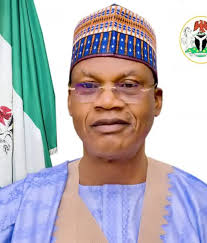NSCEA Says No to a single subject called “Religion and National Values”

The Nigerian Supreme Council for Ecclesiastical Affairs (NSCEA) strongly opposes the newly introduced curriculum for basic, senior secondary, and technical education in Nigeria. The curriculum reform has raised concerns among Christian groups and stakeholders, particularly the combination of Christian Religious Studies and Islamic Religious Studies into a single subject called “Religion and National Values”.
Historical Context
In 2017, the Minister of Education, Malam Adamu Adamu, instructed the Nigerian Educational Research and Development Council (NERDC) to separate Christian Religious Knowledge (CRK) and Islamic Religious Knowledge (IRK) in the basic education curriculum. This directive was made in response to complaints from parents and stakeholders about the merger of the two subjects. On this instruction the NSCEA and the entire Christian community still stands.
Concerns Over the New Curriculum
The NSCEA believes that this approach undermines the unique principles and values of each faith, potentially diluting the distinctiveness of Christianity and Islam. The council feels that the government did not adequately consult with relevant stakeholders, particularly Christian leaders and organizations, before introducing this new curriculum.
Impact on Moral Values
The new curriculum’s emphasis on national values over specific religious teachings may compromise the moral fabric of Nigerian society. Religious education plays a vital role in shaping the character and moral compass of students.
Changes to the Curriculum
The new curriculum introduces several changes, including:
- Basic Education: Pupils will take 9-10 subjects, including “Religion and National Values”
- Junior Secondary Education: Pupils will take 10-12 subjects, including “Religion and National Values”
- Senior Secondary Education: Students will take 12-14 subjects, including “Religion and National Values”
- Technical Education: Students will take 9-11 subjects
NSCEA’s Position
The NSCEA urges the government to reconsider this curriculum reform and engage in meaningful dialogue with Christian leaders and other stakeholders on the religious aspect of the curriculum. The council believes that the new curriculum should respect the diversity of Nigerian society while preserving the integrity of religious education.
Preserving Religious Integrity
The integrity of religious education is crucial in shaping the spiritual and moral lives of students. The NSCEA believes that Christian Religious Studies and Islamic Religious Studies should be taught as separate subjects to preserve their unique principles and values.
Call to Action
The NSCEA calls on all Christians and stakeholders to join in opposing this new curriculum and advocating for a more inclusive approach to education in Nigeria. Together, we can ensure that our children receive a well-rounded education that respects their faith and values.
Government’s Objective
The government’s objective of easing content overload and reducing the number of subjects taken at each stage is commendable. However, this should not come at the expense of diluting religious education.
Stakeholders’ Concerns
Various stakeholders, including parents, teachers, and students, have expressed concerns about the new curriculum. The NSCEA shares these concerns and calls for a more inclusive approach to curriculum development.
Christian Leaders’ Position
Christian leaders in Nigeria have consistently emphasized the importance of religious education in shaping the moral values of students. The NSCEA supports this position and urges the government to reconsider the new curriculum.
National Values
While national values are essential, they should not be taught at the expense of specific religious teachings. A balanced approach that respects the diversity of Nigerian society is necessary.
Conclusion
The NSCEA concludes that the new curriculum reform requires further review and consultation with stakeholders. The government should prioritize the integrity of religious education and ensure that the curriculum respects the diversity of Nigerian society.
Final Statement
The NSCEA remains committed to advocating for the rights and interests of Christians in Nigeria. We will continue to monitor the implementation of this curriculum reform and engage with the government to ensure that the concerns of Christians are addressed.
Signed
Bishop Professor Funmilayo Adesanya-Davies
Secretary Elders’ Council
Nigerian Supreme Council for Ecclesiastical Affairs (NSCEA)










